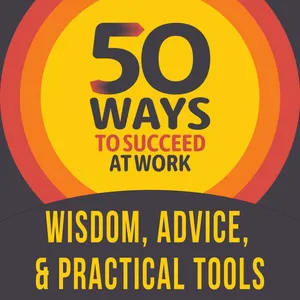SERIES 2 EPISODE 35 SILENT SENTINEL - Mastering silence to make an impact at work

In this podcast, Andrew describes being a “Silent Sentinel".
A female project manager, Jean, expresses frustration to her supervisor about being interrupted during team meetings and cannot keep people’s attention when she speaks.
The supervisor suggests that Jean attend an internal one-day learning event called “Persona Impact” to learn about the power of silence. Jean attends the event and discovers that silence can be a powerful way to gain attention and convey disapproval of certain behaviours.
Silence can also effectively indicate that you are fully present, taking notes and paying attention to what is being said.
Using your voice to speak out against injustice or abuse is also appropriate, but it’s essential to recognise that staying silent is also a choice. If speaking up will cause more harm than staying silent, then remaining silent is the better option.
Also, consider the risks of staying silent when discussing something tricky. Overall, silence can be an effective way to communicate, but it’s important to recognise when to use it and when to speak up.
Lastly, be aware of how to use silence in the workplace by experimenting with using silence in painless and thoughtful ways to gain attention.
Can't wait for Series 2 to run its course? Then buy Andrew's new book, published on Amazon, and there's also an Audio version.
Further reading and videos: Andrew recommends some useful follow through material which you can find for each episode at50Ways.site/reading; and 50Ways.site/watch.
BOOK:
The 50 Ways to Succeed at Work book is a standalone companion to Andrew Leigh's weekly podcasts.
It's an essential resource for all job starters and those at work for a few years.
Dip in and out and take what seems helpful.
https://www.amazon.co.uk/dp/B0BRM569KY
